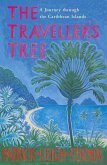An account of a journey across an inhospitable region with former Tubu rebels at a time of Tuareg insurgency, when explosions from landmines rocked towns, mountains were overrun with militia and journalists were being thrown into desert prisons for speaking to rebel leaders. The Manga is one of Africa's most remote and wild regions: a hostile and unforgiving landscape inhabited by nomads like the hardy Tubu. Situated in south-eastern Niger, and in the shadow of the Old Salt Road, it has been mislaid by the modern world; no Caucasian had been seen there in living memory. Framed against this volatile atmosphere, The Nomad's Path is the beginning of a wider enterprise: the exploration of the region's history and the ongoing consequences of the Tuaregs' 1885 disenfranchisement. It explores the centuries-old link between the Barbary Coast and the Sahel along the Old Salt Road, once trodden by corsairs and slaves, camels and the armies of empires, while conjuring to life a lost wilderness and those who survive within it. At its heart, however, is a journey across the Sahel with the Tubu nomads. It is their tale and a window into the nebulous Manga. Carr perceptively observes Tubu culture, their harmonious relationship with Islam and their interaction with the Manga's other peoples: the Fulani, Kanuri and Arabs. Woven with tales of rebellion, lost settlements and civilizations, explorers - both intrepid and mad - and an epic seventeenth century odyssey, Carr captures a sense of the intangible nature of the Sahel's Manga. This is a timely and evocative portrait of the Tubu - a people living on the tide-line of the Sahara and the edge of the world.
Hinweis: Dieser Artikel kann nur an eine deutsche Lieferadresse ausgeliefert werden.
Hinweis: Dieser Artikel kann nur an eine deutsche Lieferadresse ausgeliefert werden.








